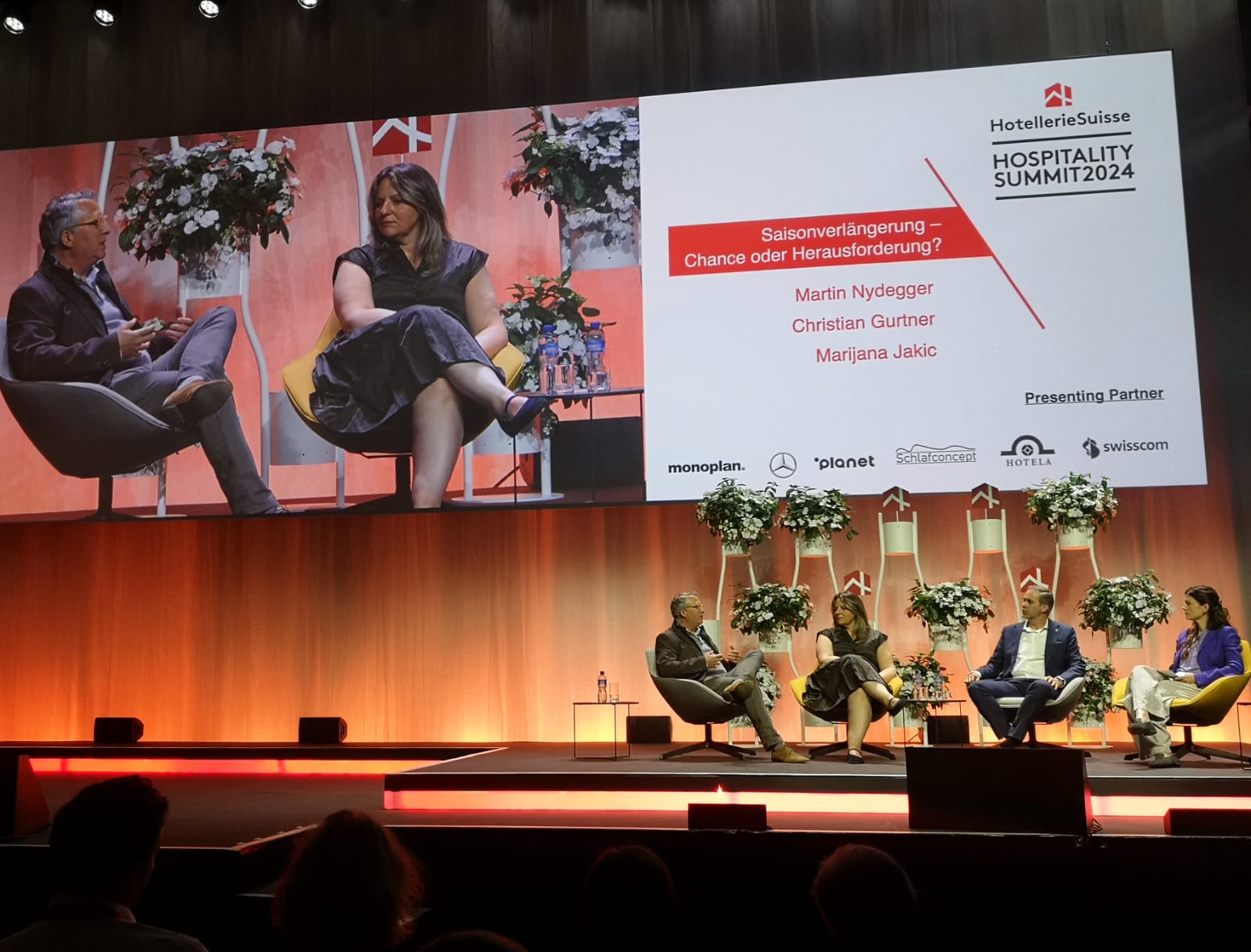luxury hospitality innovation: Is off-season the new hot-season?
Extending seasons and making off-season business more profitable are emerging as some of the most exciting yet controversial trends in luxury hospitality.
The luxury hospitality sector is outpacing the average market dynamics but is simultaneously grappling with talent shortages, inflation risks, and low occupancy rates during off-season periods. Over the past 15 years, seasonal closures in upscale vacation destinations have lengthened. Today, it is common for Mediterranean resorts to close from mid-September to mid-May, and for European Alpine destinations to shut down from late March to mid-June and from mid-September to mid-December. These breaks are often justified by the need to give hard-working teams a break, conduct maintenance or construction work, and address the challenge of generating profitable business during unfavorable climate conditions.

A closer look at the negative consequences of seasonal closing periods and lower demand during off-season times reveals unhealthy outcomes for all stakeholders in the hospitality ecosystem:
- Property Owners: No or insufficient income
- Employees: Predominantly no full-year contracts and increased unemployment
- Suppliers: Interrupted seasonal demand
- Partners (e.g., tourism offices, tourist attractions): Interrupted seasonal demand
- Local Infrastructure (e.g., shops, restaurants): Interrupted seasonal demand
- Guests: Limited lodging options and potential loss to competing destinations
For operators, owners, and investors, however, the lower demand during off-season and closing times has some benefits. Seasonal contracts reduce headcount costs significantly, the largest expense in hospitality. Additionally, these periods provide ideal conditions for property maintenance and construction work. While some employees might prefer part-time seasonal contracts for personal reasons, such arrangements generally do not provide a sustainable livelihood.

During the pandemic, rising inflation significantly altered the macro-economic climate with higher interest rates and ongoing price pressures. This greatly impacted the profitability of investors and owners in the hospitality industry, leading to increased interest costs and longer amortization cycles. Additionally, operational costs for operators grew, putting pressure on the offerings side of the hospitality business. In response, prices were raised, service levels were reduced, and significant cost management measures were introduced. However, these efforts were often insufficient to maintain profitability targets, making profitable growth under demanding conditions more essential than ever.
Recently, a shift towards a more profitable business model has become noticeable. While high-season business remains promising, the potential of off-season business is now gaining attention. Fortunately, there is a growing interest in off-season stays from the demand side. Not only more price-sensitive guests or seniors, but also an increasing number of guests from all age groups are seeking a calmer and healthier way of relaxation. In the business-to-business sector, smaller conferences, promotions and offsite meetings are currently driving demand. At first glance, this appears to be a win-win situation for the hospitality industry and its clients, offering the opportunity to extend business further. However, a closer look is essential.

From recent discussions with international hospitality leaders, owners, and investors, it has become clear that the current offering landscape in luxury hospitality is often seen as not diverse or competitive enough to nurture existing clients and to attract new ones during the off-season. During a recent panel discussion at the Swiss Hospitality Summit 2024 in Zurich, the idea of attracting more international guests during off-season times was proposed by the Swiss tourism organization Switzerland Tourism. The logic was to bring in international guests during their respective vacation periods.
Marketing low-demand periods in luxury hospitality to demanding foreign visitors can be risky if the offerings side is not synchronized with adaptations across the entire ecosystem. If you've ever visited a European mountain or beach destination in October, you'll understand that many attractions, hotels, restaurants, and infrastructure are closed.

Therefore, understanding the wants and needs of targeted guests and creating innovative offerings that include appealing elements on both personal and social levels is key. In times of cost pressure, considering cooperation strategies ("buy") is essential, especially when vertical integration ("make") is too expensive and slow. This approach to innovation requires new thinking that explicitly includes destination marketing, not only from a communication perspective but also in terms of incubation and execution to vitalize the ecosystem during off-seasons. Ideally, destination marketing sets the framework for a region, supporting respective stakeholders in driving awareness and demand generation.

The new way of thinking in hospitality is a connected "outside-in" approach, where the targeted guest groups ("personas") and their needs for experiences are at the forefront. This mindset is rare, and the hospitality industry and its ecosystem must learn to rediscover guests to create winning strategies that make them appealing and relevant. "Profitable Demand," "New Guest Groups," and "Younger Audiences" are within reach. Reach out!
Are you a hospitality owner, investor, operator, or key decision-maker in tourism interested in learning more about how to make your off-season your hot season?
viabledesign is looking forward to working with you!
Detlef Schmidt, July 2024
Photo Credit:
All rights are with Detlef Schmidt, Sils, St. Moritz & Zurich, Switzerland; Milan, Italy; June 2024
share